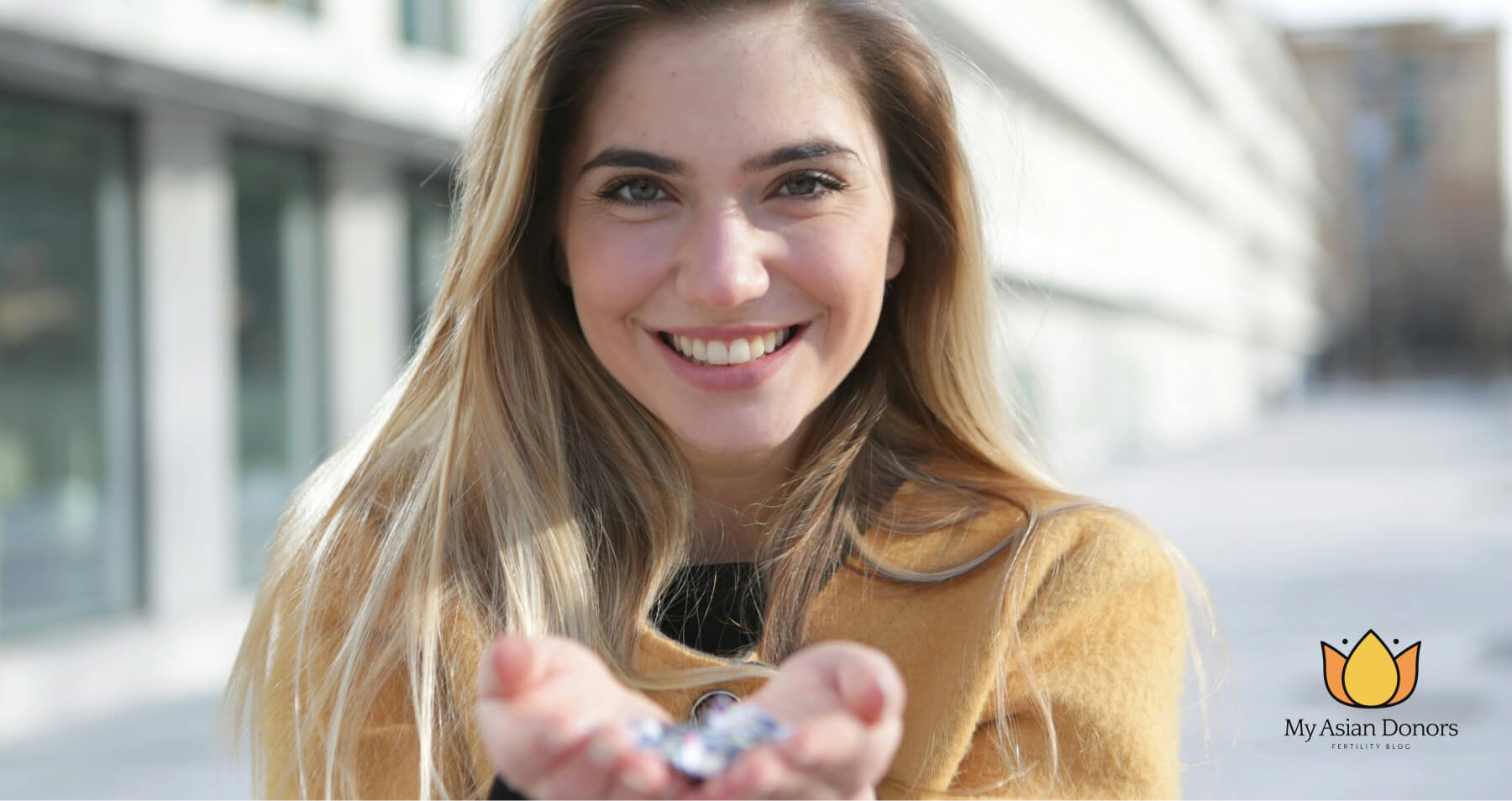Selecting an Egg Donor: Important Factors to Consider for Intended Parents

Table of Contents
The selection of an egg donor is a highly personal decision for intended parents, and they may weigh these factors differently based on their individual preferences and circumstances. It's important for intended parents to work closely with their fertility clinic or agency to find an egg donor who meets their criteria and who they feel comfortable with.
Physical and Ethnic Resemblance
Many intended parents prefer donors with physical features or ethnic backgrounds similar to their own, aiming for a resemblance between the child and themselves. This preference can help create a sense of genetic connection and familial resemblance within the family unit. It can also be important for intended parents who wish to disclose the use of donor eggs to their child, as a physical resemblance can make the disclosure process easier to navigate.
For some intended parents, physical and ethnic resemblance can play a significant role in their decision-making process. They may feel more connected to a donor who shares similar physical traits or cultural backgrounds, believing it can enhance the child's sense of identity and belonging within the family.
However, it's important to note that while physical and ethnic resemblance can be important considerations for some intended parents, they are not the only factors to consider when selecting an egg donor. The health, age, personality, and other characteristics of the donor are also important considerations, and each intended parent will weigh these factors differently based on their individual preferences and values.
Ultimately, the decision of whether physical and ethnic resemblance is an important factor in selecting an egg donor is a personal one for each intended parent. It's important for intended parents to discuss their preferences and concerns with their fertility clinic or agency to find an egg donor who meets their criteria and who they feel comfortable with.[1][4]
Personality Traits and Talents
Some parents value specific personality traits, talents, interests, and intelligence in egg donors, believing these characteristics may influence the child's development. Intended parents may seek donors who exhibit qualities such as kindness, empathy, creativity, or academic achievement, as they believe these traits can contribute to a positive upbringing and a well-rounded child.
Parents may also value donors who have particular talents or interests, such as musical ability, artistic talent, or athleticism. They may believe that these talents can enrich the child's life and provide them with additional opportunities for personal growth and development.
Intelligence is another trait that some parents prioritize in an egg donor. They may seek donors who have a high level of intelligence or who have achieved academic success, believing that intelligence is an important factor in a child's future success and well-being.
While personality traits, talents, and intelligence are important considerations for some parents, it's important to note that these characteristics are not determinative of a child's future development. Many factors, including parenting style, environment, and individual experiences, play a role in shaping a child's personality and abilities.
The decision of whether to prioritize specific personality traits, talents, or intelligence in selecting an egg donor is a personal one for each intended parent. It's important for intended parents to consider their own values and priorities, as well as the advice of medical professionals, when making this decision.[2][4]
Medical History and Genetic Screening
Ensuring a donor's medical history is free of serious diseases or hereditary conditions is crucial. Genetic screening helps identify potential risks and ensure a healthy outcome for the child. Intended parents often place a high priority on the health of the egg donor, as they want to minimize the risk of passing on genetic disorders or serious medical conditions to their child.
Genetic screening is typically conducted to assess the donor's risk of carrying genetic mutations that could be passed on to offspring. This screening can help identify potential risks and allow intended parents to make informed decisions about the selection of an egg donor.
In addition to genetic screening, donors are typically asked to provide a detailed medical history for themselves and their family. This information helps assess the donor's overall health and identify any potential risk factors that could impact the success of the donation process or the health of the resulting child.[2][5]
Egg Donation Cycle Type
Intended parents must decide between fresh and frozen egg donation cycles, each with its own advantages regarding timing, synchronization, budget, and candidate pool size.
- Fresh Egg Donation: In a fresh egg donation cycle, the donor's eggs are retrieved and fertilized shortly before they are transferred to the recipient. This allows for a shorter timeline from donor selection to embryo transfer, which can be appealing to some intended parents who prefer a more immediate process. Additionally, fresh eggs are not subjected to the freezing and thawing process, which can sometimes affect egg quality.
- Frozen Egg Donation: In a frozen egg donation cycle, the donor's eggs are retrieved, fertilized, and then frozen for later use. This allows for more flexibility in timing, as the eggs can be thawed and fertilized when the recipient is ready for embryo transfer. Frozen egg donation cycles also tend to be less expensive than fresh cycles, as they do not require the synchronization of the donor and recipient's menstrual cycles.
The choice between a fresh or frozen egg donation cycle depends on the preferences and circumstances of the intended parents. Some may prefer the convenience and flexibility of a frozen cycle, while others may prioritize the perceived advantages of using fresh eggs. It's important for intended parents to discuss their options with their fertility clinic or agency to determine the best approach for their individual needs.[2]
Agency Support and Database Access
Working with reputable egg donor agencies like MyEggBank or Egg Donor America provides access to extensive databases of pre-screened candidates, facilitating the selection process based on personal criteria and needs.
- Database Access: These agencies maintain databases of potential egg donors who have undergone thorough screening processes. Intended parents can access these databases to review donor profiles, which typically include information about the donor's physical characteristics, health history, education, and personal interests. This allows intended parents to select a donor who matches their criteria and preferences.
- Support and Guidance: In addition to providing access to donor databases, egg donor agencies offer support and guidance throughout the donation process. They can help intended parents navigate the legal, medical, and logistical aspects of egg donation, ensuring a smooth and successful experience. Agencies also provide counseling services to help intended parents and donors understand the emotional aspects of egg donation and make informed decisions.
By working with a reputable egg donor agency, intended parents can benefit from a streamlined and well-supported donation process. The agency's expertise and resources can help ensure that intended parents find a suitable donor and that the donation process is conducted safely and ethically.[2][4]
Personal Preferences vs. Limitations
While it's natural to have preferences when selecting an egg donor, being too specific can limit options. Prioritizing desired characteristics and traits while remaining open-minded can broaden the pool of potential candidates.
- Preferences: Intended parents often have specific preferences when selecting an egg donor, such as physical characteristics, education level, or personality traits. These preferences are important as they help intended parents find a donor who aligns with their values and desires for their future child.
- Limitations: However, being too specific in your preferences can limit the pool of potential candidates. For example, if you only consider donors with a certain hair color or height, you may miss out on donors who could be a great match in other ways. It's important to prioritize your preferences while also remaining open-minded about other characteristics and traits that may be important to you.
By striking a balance between personal preferences and limitations, intended parents can increase their chances of finding a donor who meets their criteria while also keeping their options open. It's important to communicate your preferences clearly with your fertility clinic or agency and to be open to considering donors who may not meet all of your criteria but who still have the qualities you value.[1][2][3][4][5]
Sourses:
- gostork.com/eggdonor/egg-donor-search/
- myeggbank.com/blog/selecting-an-egg-donor-important-factors-to-consider-for-intended-parents
- asiawesteggdonors.com/intended-parents-common-questions/
- eggdonoramerica.com/blog/the-top-factors-intended-parents-consider-when-choosing-an-egg-donor
- fertilitysa.com/fertility-treatment/egg-donation/selecting-an-egg-donor

